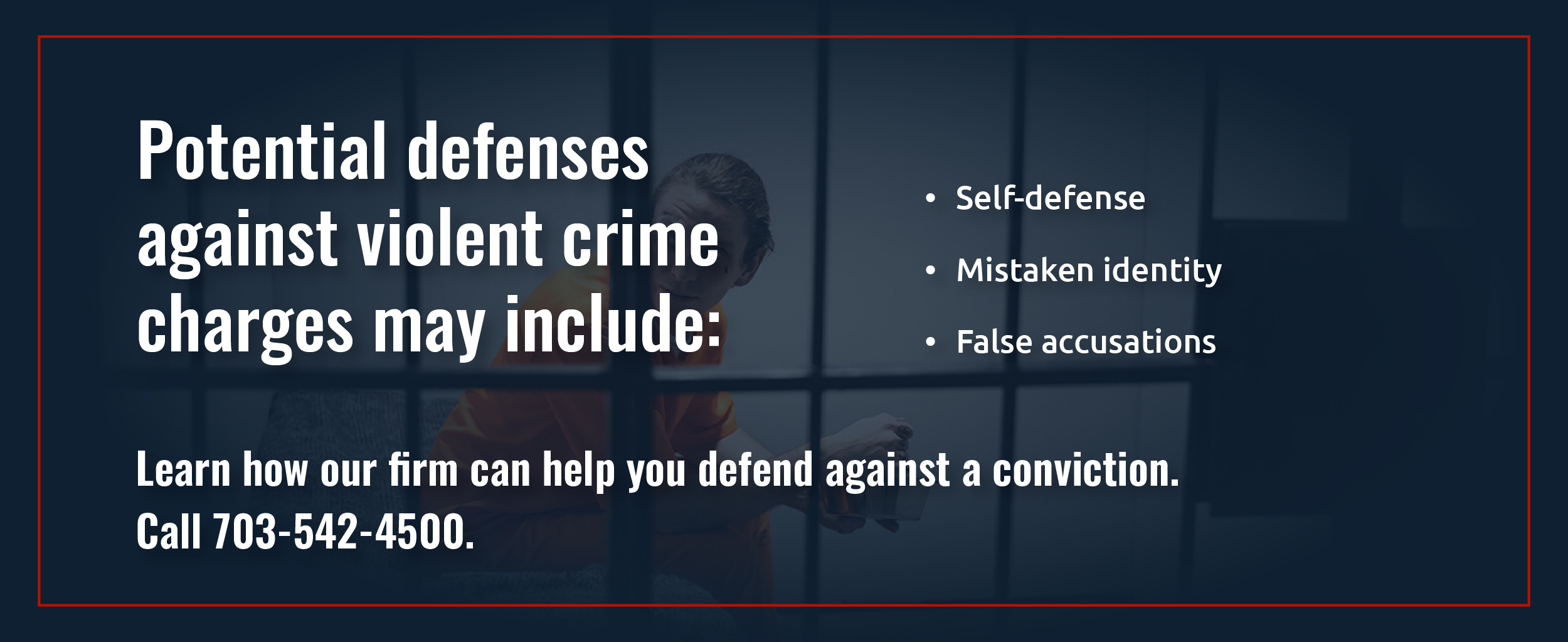McLean, VA Strangulation Charges Attorney
Lawyer for Strangulation or Suffocation Charges in McLean, Virginia
Criminal charges involving acts of violence can be serious, especially when a person is accused of an offense involving conduct that allegedly endangered another person's life. In Virginia, the act of strangling or suffocating another person is a felony violent crime. These charges may arise in multiple types of situations, including domestic incidents, bar fights, or arguments that lead to assault and battery charges. Understanding the legal definitions, penalties, and potential defenses for these crimes is essential for anyone who has been accused of this type of offense.
If you have been charged with a violent crime involving strangulation or suffocation, you may face multiple types of serious penalties. In addition to the possibility of incarceration, a conviction will leave you with a permanent felony record and the loss of rights such as firearm ownership. At Noorishad Law, P.C., our experienced attorney will perform a detailed examination of the facts of your case and determine the best defense strategies that will help you prevent a felony conviction. He will fight to protect your rights and work to achieve the best possible results in your case.
Understanding the Legal Definitions of Strangulation and Suffocation
Under Virginia law, you could be charged with strangulation or suffocation if you are accused of taking actions that restrict a person's blood circulation or prevent them from breathing. Strangulation involves applying pressure to the neck, and it may lead to criminal charges if it allegedly resulted in a bodily injury. Suffocation is a similar offense, and it involves blocking a person's airways, such as by placing a pillow over their face.
When Strangulation or Suffocation Charges May Accompany Other Violent Crimes
Strangulation or suffocation will often be charged alongside other violent offenses. In addition to suffocation or strangulation, you could be charged with offenses such as:
- Assault and battery
- Domestic violence
- Malicious wounding
- Attempted murder
In situations involving domestic incidents, the alleged victim may report being choked during an altercation. Prosecutors may charge you with strangulation even if no visible injuries were present at the time of arrest. "Bodily injury" does not necessarily involve visible marks. Claims that an alleged victim experienced pain, difficulty breathing, or dizziness may result in strangulation or suffocation charges. You will need to determine the best ways to respond to these accusations, and our attorney can provide guidance on the strategies that may be effective in your defense.
Criminal Penalties for Strangulation or Suffocation in Virginia
Charges of strangulation or suffocation are classified as Class 6 felonies under Virginia law. If you are convicted, you could be sentenced to between one year and five years in prison and fined up to $2,500.
If the alleged offense involved domestic violence, you could face additional consequences, including mandatory counseling, supervised probation, and ineligibility for certain diversion programs. You may also be subject to an order of protection that could limit your ability to contact your family members or return to your home. In cases where an alleged act of strangulation resulted in serious or permanent injury, you could face more serious felony charges such as aggravated malicious wounding, which can lead to a sentence of 20 years or more.

Defense Strategies for Strangulation and Suffocation Charges
Every criminal case is unique, and an effective defense begins with a thorough investigation of the facts and circumstances. Our attorney will work to determine the defense strategies that may be successful, which may include:
- Lack of Intent: The prosecution must prove that you intended to impede someone's breathing or blood flow. Demonstrating that you had no intent to cause harm may be a good option for defense.
- No Bodily Injury: The statute requires bodily injury, which may be disputed by medical records or expert testimony showing that no damage occurred.
- Self-Defense: If you were protecting yourself from harm, and reasonable force was used, self-defense may be a valid legal justification.
- False Allegations: In some cases, the charges may be based on misunderstandings or intentional fabrications, particularly during contentious domestic disputes or custody battles. It may be possible to provide an alibi or show that you did not commit the alleged offense.
- Insufficient Evidence: Lack of physical evidence, conflicting witness testimonies, or inconsistent statements may be used to raise reasonable doubt.
Our experienced attorney may be able to argue for a dismissal based on procedural violations such as unlawful arrest or improper evidence handling. He can review all facts surrounding your case to identify the ideal strategies that will help you avoid a conviction. At all times, Noorishad Law, P.C. will work to make sure you can achieve a positive outcome to your case.
Contact Our McLean Strangulation/Suffocation Defense Lawyer
Accusations of strangling or suffocating another person should be taken very seriously. Because of the high stakes of these cases, you need an attorney who can help you defend against a conviction. At Noorishad Law, P.C., we can provide the representation you need, and we will work to protect your rights throughout your case. To arrange a free consultation, contact our firm today at 703-542-4500.






